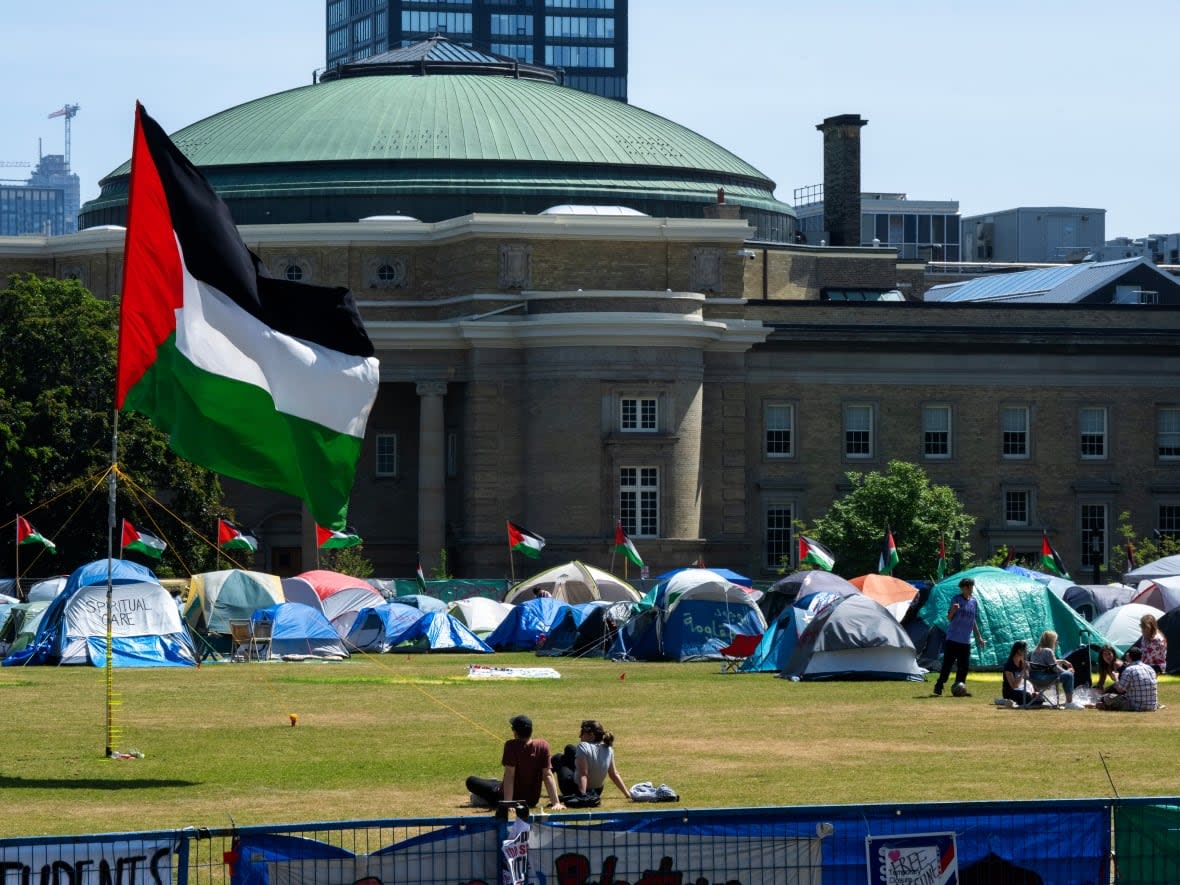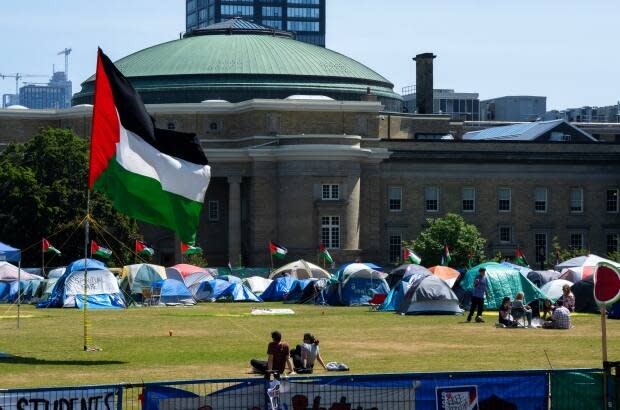U of T convocation begins Monday as encampment stays put

The University of Toronto is setting up fencing and beefing up security, as the first day of its 2024 spring graduation ceremonies begin against the backdrop of a pro-Palestinian encampment steps away from Convocation Hall.
Convocation at the university will run from Monday until June 21, with the first students from the school's Mississauga campus set to walk across the stage on Monday afternoon. In late May, the university requested an urgent court injunction that would authorize police to clear the encampment, but the earliest a hearing will be held is June 19 or 20.
As a result, most graduating students and their guests will walk past the tents, Palestinian flags and protest signs during their big day. The university said there will be about 13,000 students taking part in graduation ceremonies.
"We also recognize that this is a challenging time for many in our community and we acknowledge the pain and suffering felt by those impacted by the conflict in the Middle East," the university said in an email Monday.
"With that in mind, we hope everyone will allow our graduating students to have their moment without disruption or interruption."
The university said it's taking extra precautions like requiring students to show identification when they get their gowns and restricting bags and personal items brought into the hall. It also set up opaque fencing between Convocation Hall and the encampment.

The encampment began on May 2 and has steadily grown since, with students demanding the university disclose its investments in companies profiting from Israel's offensive in Gaza, among other things. Meanwhile, Jewish groups have asked for intervenor status in the injunction because they say the demonstrators have made Jewish students and faculty feel unsafe on campus.
Demonstrators hold ceremony for Palestinians
On Monday, pro-Palestinian students and faculty held their own graduation ceremony for students in Gaza who won't have one. In April, the United Nations said 80 per cent of schools in Gaza have been damaged or destroyed during the fighting.
In Khan Younis, Gaza's Al-Aqsa University has mostly been destroyed and transformed into a garbage dump longer than Seattle's space needle.
At U of T, students set up empty chairs representing Gazan students killed during the fighting. Esmat Elhalaby, an assistant professor of history at the university's Scarborough campus, said at the ceremony that the university's response to the demonstrators demands has thus far been insufficient.
"Every Israeli bomb and every Palestinian death may be linked to us here in North America, in Canada, in Toronto," he said. "At this university, we're complicit in the mass murder of our colleagues and classmates."
Jewish groups want encampment gone
Earlier in the day, a coalition of Jewish groups held a news conference to share their concerns about the encampment, including the UJA Federation of Greater Toronto and Friends of Simon Wiesenthal Center.
Seth Goren, CEO of Hillel Ontario, told reporters that the encampment has fostered hate speech and violence. He cited the recent arrest of a 36-year-old man after an alleged assault at the encampment in early May.
Police say the same man was previously arrested on Jan. 13 and charged with obstructing a police officer for allegedly refusing to leave the Avenue Road and Highway 401 overpass during a demonstration. Police had prohibited protesting in that area, citing public safety and concerns from those in the Jewish community there.
WATCH | Seth Goren shares experiences of U of T's Jewish community:
There were no injuries in the alleged assault at U of T and police say it is not being considered a hate crime.
Goren said he and others were there to say hate and bigotry have no place in Canada.
"Every U of T community member should feel safe and be free from harassment and intimidation on campus, and Jewish students, faculty and staff are no exception," he said.


